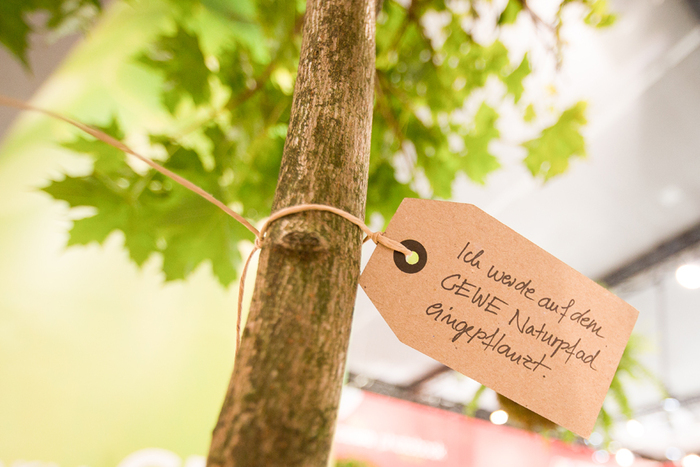
Managing materials responsibly
In 2017, an analysis of the environmental impact showed that a use of materials that saves resources is an crucial environmental aspect for CEWE: The Life-Cycle-Assessment that CEWE has conducted of products with the highest turnover demonstrated that materials are the most significant factors.
In relation to materials and waste, two measures play an outstanding role in CEWE’s environmental policy:
- The materials used are selected specifically not only in terms of their quality, but also their environmental aspects.
- Production aims to generate as few scraps as possible and waste that cannot be avoided is disposed of in apro-environment manner.
CEWE greatly values the use of earthfriendly materials, especially when it comes to the most relevant raw material – paper – and the most important product, the CEWE PHOTOBOOK.
Read more in our sustainability report of 2023 from p. 45 onwards

Sustainable procurement strategy
CEWE examines the direct suppliers of production materials for its supply chain. When purchasing through business partners, a supplier of critical materials is also examined and, where necessary, also their supplier(s). Critical materials are categorised as such if the products are of special relevance to product safety and product quality or even sustainability. The former encompasses, for example, special duties to examine required by commodities for foodstuffs, such as cups or coatings. Sustainability, for example, also focuses on the social conditions in the countries where a product is sourced if considered critical.
CEWE has been a member of the German Association of Materials Management, Purchasing and Logistics (BME) since 2010. The voluntary BME Code of Conduct is a basis for ethical and fair behavior in the supply chain.
Wherever production sites make it possible, CEWE works with local suppliers. This refers to the production materials. All production materials are rated as local if the supplier comes from the same country where the materials are produced. Some product materials are currently not available in Europe, or are difficult to source in Europe, such as mobile phone cases, ceramic or certain papers that are needed for instant printing at the store.
In the reporting year, 41 % of materials were sourced locally (2022: 46 %); 36 % within the European Economic Area (2022: 34 %); and 23 % from abroad (2022: 20 %). The proportion of spending on local suppliers is not accounted for.
Read more in our sustainability report of 2023 from p. 32 onwards

Waste and recycling
CEWE's waste balance rates the volumes of waste by types of material. The largest amount of waste is produced by far from printing paper and packaging. For printing paper in particular, it is extremely important that the paper waste added to the recycling process is of a high quality. Generally, CEWE aims to reduce waste and optimise recycling processes. For this reason, quality recycling is applied not only to paper products, but instead, improvements throughout the entire company are targeted. Hazardous waste such as waste chemicals that are produced when preparing photographic baths are recycled at a rate of 90%. Moreover, consistent electrolytical de-silvering of the photographic process solutions has been reclaiming on average more than 95% of the silver for some years now. And even for day-to-day operations, possibilities to save materials and decrease waste are continually sought. In 2019, for instance, the entire group converted to suppliers submitting their invoices electronically.
Read more in our sustainability report of 2023 from p. 45 onwards

